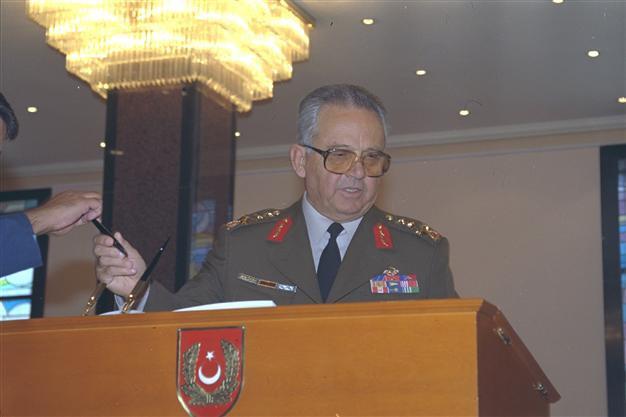'Post-modern' Feb. 28 coup commander: We had good intentions
ANKARA

The remarks by ret. Gen. Hikmet Köksal came as he was speaking of the West Study Group (BÇG) during his defense before the Ankara 13th High Criminal Court. DHA photo
A top commander of the time, being tried in relation with the notorious military intervention of Feb. 28, 1997, often described as a “post-modern coup,” said there would have been much harsher interventions if they had ill intentions.The remarks by ret. Gen. Hikmet Köksal came Nov. 20 as he was speaking of the West Study Group (BÇG) during his defense before the Ankara 13th High Criminal Court. Köksal, the land forces commander from August 1996 to August 1997, said he heard about the BÇG after he retired.
The BÇG is a committee of military officials that is said to have monitored the government, keeping illegal records of private information on hundreds of thousands of people as part of the Feb. 28 process.
Although not having been involved in the BÇG, labeling the BÇG as “an illegal body,” saddened him, Köksal said.
“The TSK [Turkish Armed Forces] doesn’t perform illegal work; it does the required things when conditions require so,” Köksal was quoted by the Anadolu Agency.
“There was no need for illegal activity either. If our intentions were bad, nobody would be able to easily stop us. This should be known as well,” Köksal added.
The Feb. 28 process refers to the harsh army-led campaign that forced late Necmettin Erbakan, to resign in June 1997.
The Feb. 28 National Security Council (MGK) declaration asked the government to comply with legislation on secularism while giving the government a list of actions to take in regards to the situation.
The tanks rolling in the streets of the Sincan district of Ankara on Feb. 4, 1997 following an Islamic gathering organized by the local municipality sparked the process that led to what would eventually cause the fall of the Erbakan government.
Köksal suggested that it was extremely “exploited.” “It is interesting that the incident where three tanks were shown as elements of threat on television monitors, doesn’t have anything to do with threat and intimidation. However, tanks passed through Sincan as a requirement of the annual training plan. Why Sincan? Sincan is not located downtown; so that we would not harm the main road in places like Ankara and Istanbul and not impede the flow of traffic,” he said.
















